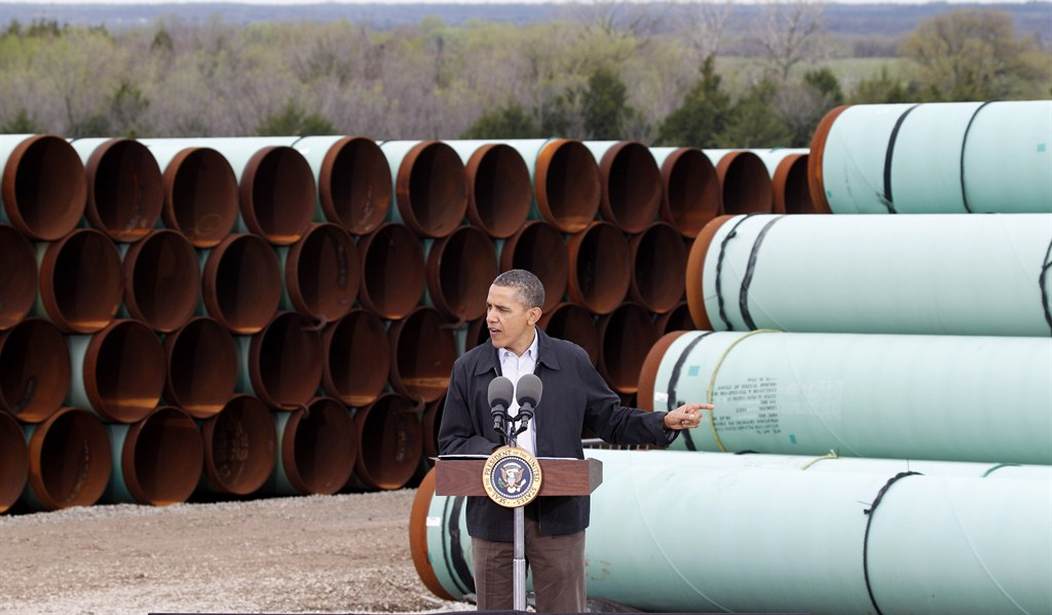No one expects the wheels of government to move fast. Washington’s pace can easily be compared to Beltway traffic in the morning: gridlock that is intermittently interrupted by small bursts of movement. The public may be frustrated by the lack of movement in Congress, but the Obama Administration has done its fair share of dragging its feet, particularly in regard to our nation’s energy future.
Proposed energy development and infrastructure projects now take multiple years for the federal government to review and permit. Similar projects may have only taken several months to complete in past Administrations, both Democrat and Republican. These delays are not unintended. The Obama Administration has demonstrated that it can and will delay a project by extending or adding layers of unnecessary reviews. By doing so, officials within the Administration believe that they can dodge taking a public position on projects that are supported by key labor allies and opposed by key environmental allies.
Nowhere is this pattern of obstruction more clear than with Keystone XL and Atlantic offshore drilling. September 19th will mark five years since TransCanada submitted its original application to build the Keystone XL pipeline to the Department of State. Since then, the State Department has issued three draft Environmental Impact Statements (plus two supplemental drafts) and held at least five public comment periods, including more than a dozen public hearings along the pipeline route and in Washington. Despite five years of regulatory review, a decision on the project is still outstanding – and probably won’t be before 2014. Canada, on the other hand, approved its portion of Keystone XL in March 2010.
Recommended
It is telling to compare this process with the permitting process for TransCanada’s originalKeystone pipeline – which runs from Hardisty, Alberta to refineries in the Midwest and to Cushing, Oklahoma and has been in operation since 2010. The 2,151 miles-long Keystone currently transports approximately 590,000 barrels per day of Canadian crude to U.S. refineries and required only 23 months for President Bush’s State Department to review and permit. Although Keystone and Keystone XL are very similar projects and should have similar review timelines, the State Department has already spent an extra 37 months reviewing Keystone XL.
A similar tale is unfolding in the quest to open the Atlantic to oil and natural gas drilling. Industry interest in developing the Atlantic is rising and public support is overwhelming. In Virginia, 80% of voters polled agreed that Virginia should open its waters to offshore drilling, and Virginia’s bipartisan delegation – including its two Democratic U.S. Senators – have introduced and supported legislation that would commence leasing.
Despite this level of public support, the Obama Administration has blocked leasing in the area until at least 2017. Taking it one step further, the Administration has prevented private companies from even executing seismic studies of the region, which would help determine the size of the oil and gas reserves under the Atlantic. Specifically, the Department of the Interior has delayed by nearly two years the finalization of an environmental assessment that would permit companies to survey the area with seismic surveying technologies. Interior initially stated in February 2010 that this environmental review would be complete by April 2012. Time passed and nothing happened. Now, the agency says the review will be done by March 2014 – over four years since Interior initiated the process. For comparison’s sake, Interior spends about two to three years developing an environmental assessment that guides offshore oil and gas drilling for all of the United States.
Why all the fuss? Environmentalists have wrongly concluded that by preventing activities associated with energy development – like building oil pipelines – they can magically stop fossil fuel production and consumption. Afraid to challenge environmental opposition groups, the Administration has apparently decided that it can delay these types of projects rather than rejectthem. Saying an unequivocal “no” to Keystone XL runs afoul of the President’s stated goals for North American energy independence and would agitate his tenuous relationship with labor and moderate Senate Democrats. The same goes for Atlantic surveying and leasing in the federal waters adjacent to Virginia, a state that was critical to the President’s reelection and where residents overwhelming support offshore drilling.
These blatantly political delays will come with far-reaching consequences. The energy industry and other private investors stand ready to sink billions of dollars into the U.S. economy to build pipelines, pursue offshore drilling and execute dozens of other projects. Regrettably, this Administration has sent a strong message to the energy industry and other private investors that investment in the United States comes with a lot of risk – if it will come at all .
























Join the conversation as a VIP Member